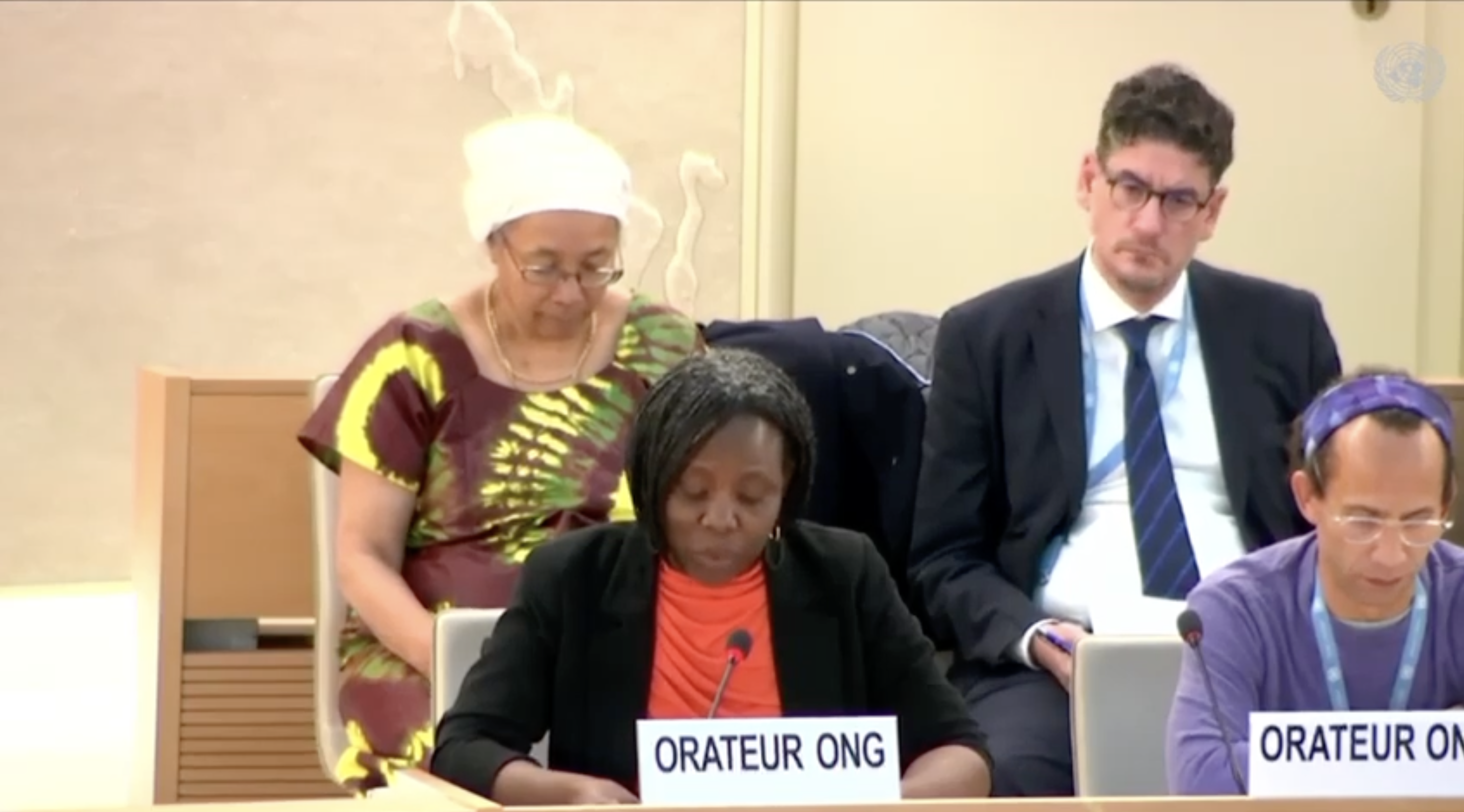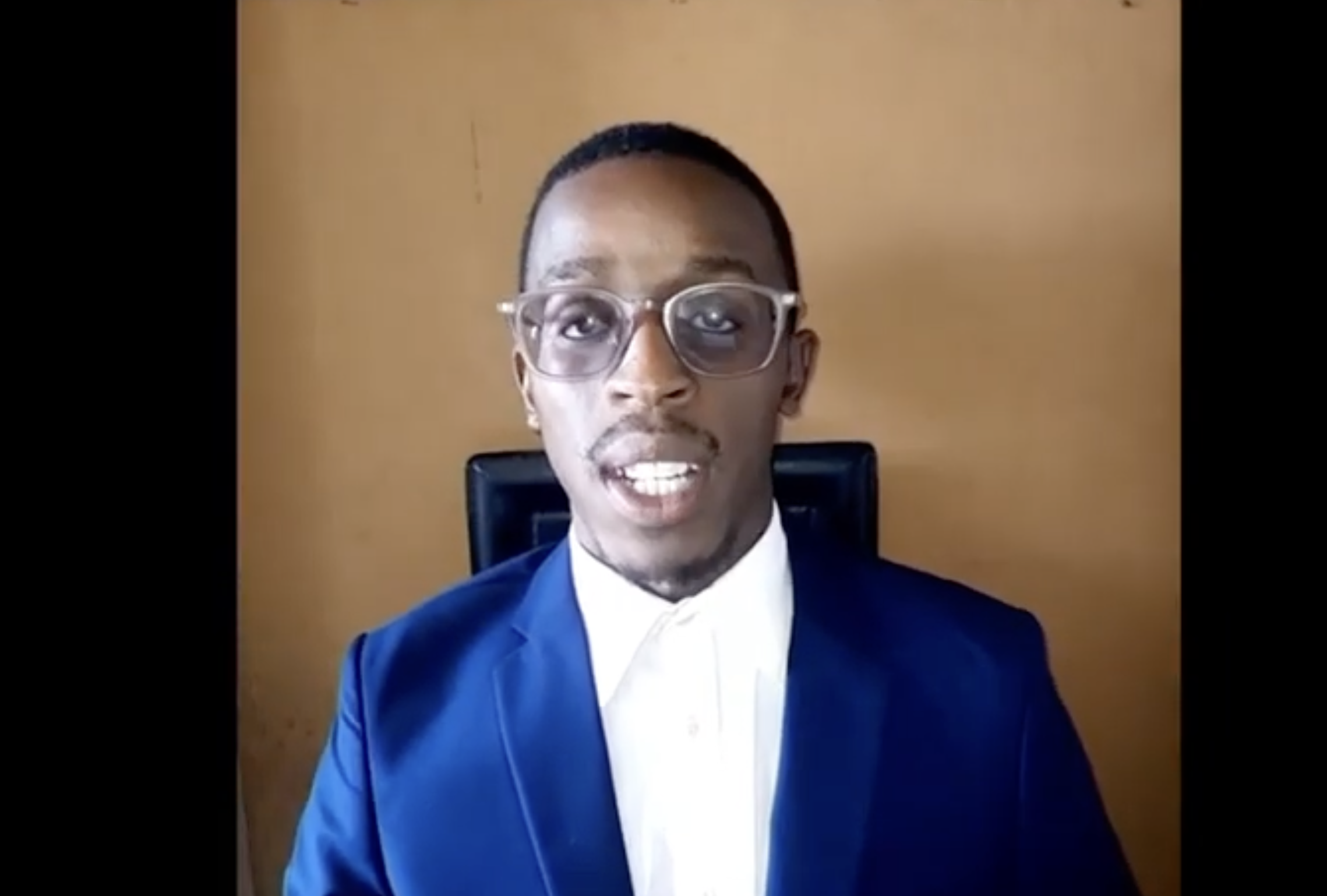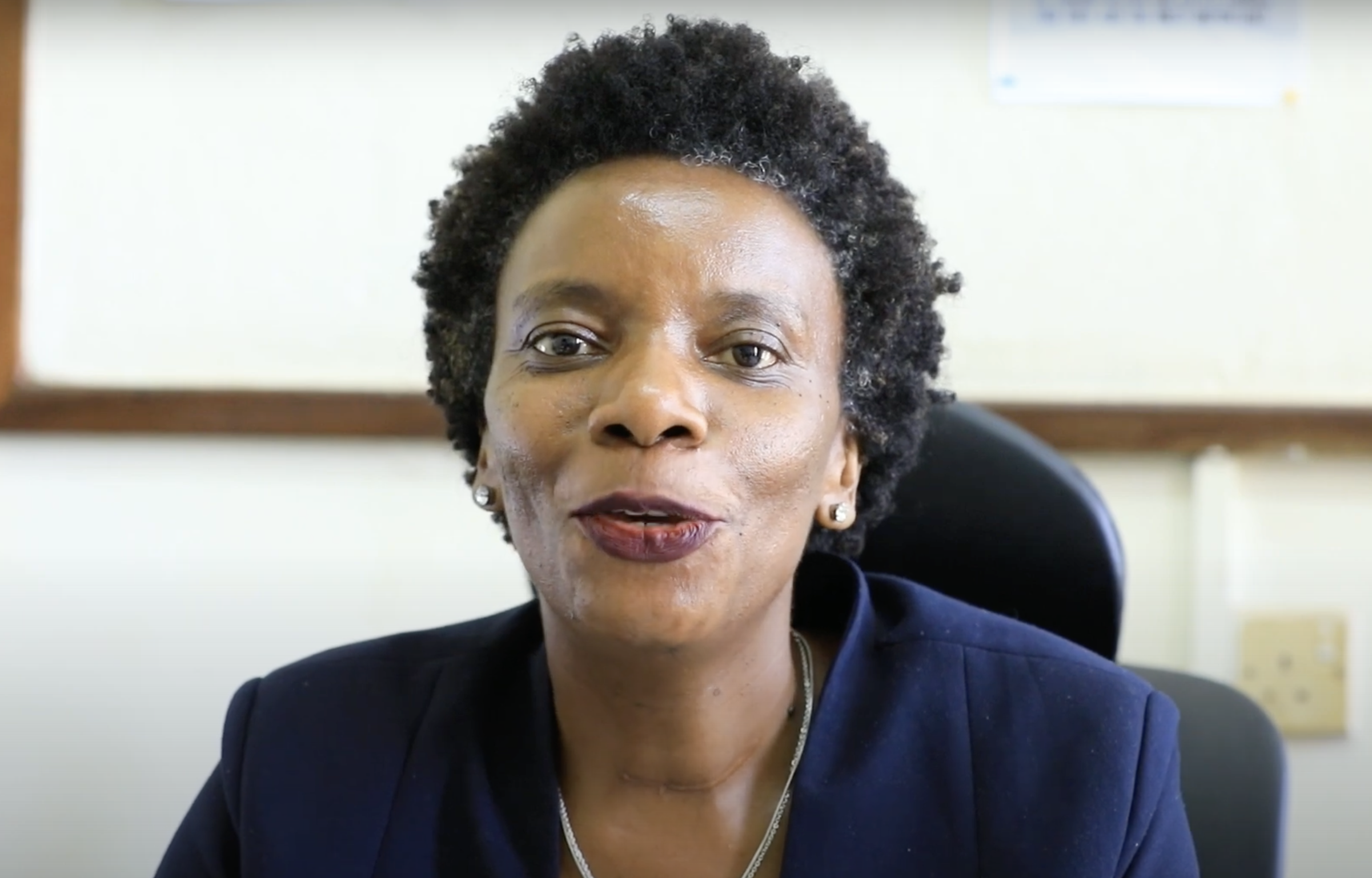The 57th Session of the Human Rights Council
9 September – 9 October 2024
Agenda Item 3 – Promotion and protection of all human rights, civil, political, economic, social and cultural rights, including the right to development
Interactive Dialogue with the Special Rapporteur on the right to Development
18-19 September 2024
By Cheong H. Chan / GICJ
Executive Summary
The Special Rapporteur on the Right to Development, Mr Surya Deva, delivered a report on the right to development of children and future generations (A/HRC/57/43) and a post-visit report on the right to development in Vietnam (A/HRC/57/43/Add.1) for the 57th session of the Human Rights Council. The Council held interactive dialogue sessions regarding these reports on 18 and 19 September 2024.
Mr Deva summarised areas that the international community and States should work on to promote the right to development, especially for children and future generations. He formulated the five action pillars to promote the right to development of children, namely, investing in child development, nurturing responsible leadership, enabling participation, ensuring safety, and facilitating remediation. The framework received commendation from various countries during the interactive dialogue.
Climate change and natural disasters were one of the focal points of this dialogue, particularly due to Typhoon Yagi in Vietnam, September 2024, which was its worst storm in the last six decades. It was further noted that island countries are particularly vulnerable to adverse climate conditions.
During his mandate, the Special Rapporteur visited Vietnam to review the country’s implementation of the right to development. The post-visit report highlights several areas for improvement, such as registering the undocumented ethnic minority population to enhance their access to resources, strengthening the protection for the civil society by ratifying the ILO Freedom of Association and Protection of the Right to Organise Convention, 1948 and establishing a better land registration system. Those recommendations involve the rule of law, individuals’ right to development and the minority groups’ collective right to development, and are applicable to other developing countries.
The Special Rapporteur concluded that, despite the increasing attention to children’s wellbeing, there arestill many children suffering from malnutrition, poverty, forced labour, and human trafficking. He encouraged States and other actors, including businesses, to prioritise the five action pillars to systematically close the gap between the reality and the Sustainable Development Goals. He also expanded upon the rights of future generations, including the rights of non-human species, and emphasised that present generations should not undermine future generations’ rights or limit their choices.
Geneva International Centre for Justice (GICJ) congratulates the Special Rapporteur for his report on the right to development. GICJ remains concerned about the plight of millions and supports prioritising the five action pillars to manage the right to development, especially for the vulnerable communities. GICJ agrees that present generations’ needs should never compromise future generations’ human rights. More attention should be paid to children when governments and other stakeholders make decisions.
Background
The report on the right to development of children and future generations discusses development from both theoretical and practical perspectives. To prepare for the report, the Special Rapporteur called for input from States and other stakeholders, and received over 90 submissions. The report covers several topics, including international labour standards, children’s rights and business, and Sustainable Development Goals.
Mr. Deva, first clarified some terminology. He noted that children are referred to as the future of society but future generations should refer to those who will be born in the future. Children and future generations will experience disproportionate impacts of climate challenges while making minimal contribution to these challenges. Thus, their opinion on governance decisions should be heard. In reality, while initiatives like youth parliaments may help bring teenagers’ voice into the policymaking process, future generations, toddlers and babies are unable to articulate their thoughts or have a comprehensive understanding of the political situation. Having a minister responsible for children and future generations may help protect their rights.
Report on the Right to Development
Mr. Deva spent most time discussing children’s right to development. Although he also touched on other groups, children were the central focus . He began the discussion with statistics, stating that 200 million children below five years old suffer from undernutrition. Over 460 million children are living in or fleeing from conflict. He identified the five action pillars to promote the right to development of children, namely, investing in child development, nurturing responsible leadership, enabling participation, ensuring safety, and facilitating remediation.
Investing in child development includes States prioritising the fulfilment of children’s basic needs and international development assistance such as grants offered by multilateral development banks and contribution from businesses. Nurturing responsible leadership focuses on instilling values like human rights and democracy to children.
Children’s right to development means their participation in different societal areas, including family,school, and society. It also implies the right to participation in decision making. The Special Rapporteur emphasised children’s agency, and how decision makers should create favourable conditions to facilitate children’s active, free, and meaningful participation. Mr. Deva also stated that children should participate in the process of conceiving and implementing various development-related policies, programmes. and projects. Children should have agency not merely over their own development, but also over the development of other human beings. The right to development also carries a collective dimension, for example, indigenous peoples’ right to self-determination and to preserve their culture, land, language or traditions.
Ensuring safety includes domestic safety, safety in society, during armed conflicts, and online safety. Facilitating remediation highlights the roles of States, schools, national human rights institutions, and companies. When discussing safety, the Special Rapporteur pointed out that over 14,000 children had been reported dead in Gaza since 7 October 2023. The Special Rapporteur reminded the Council that children are particularly vulnerable in wars, acknowledging their needs for food, clothing, and medical treatments, as well as the special care of children who are orphaned or separated from their families.
The Special Rapporteur suggested that children should be able to seek reparations for violations of their rights through judicial and non-judicial mechanisms. Meanwhile, multilateral organisations, such as development banks, should have remedial mechanisms to handle complaints linked to violations of developmental rights concerning the projects they fund.
For intergenerational equity, the Special Rapporteur suggested that present generations should take future generations’ right to development seriously. The concept is acknowledged in the Rio Declaration on Environment and Development, the Vienna Declaration and Programme of Action, the Paris Agreement, and other relevant standards.
Mr. Deva referred to international law to reiterate the importance of the right to development and States’ commitment. The International Covenant on Civil and Political Rights and the International Covenant on Economic, Social and Cultural Rights include the obligation of States to uphold equal rights for all children. The latter requires States to set statutory minimum working age (art. 10 (3)) and to take steps to reduce infant mortality (article 12 (2)). Moreover, article 24 (3) of the former states children’s right to a nationality, which is crucial for those facing statelessness due to discrimination, gaps in nationality laws, lack of birth registration, and conflicts. The Convention on the Rights of the Child adopts the best interests of the child as a core principle in safeguarding children’s rights. It covers r children’s physical, mental, spiritual, moral and social development (article 27).
The Special Rapporteur also quoted the Sustainable Development Goals, stating that some goals are children-specific, for example, halving the number of children living in poverty (target 1.2), ending malnutrition among children (target 2.2), ending preventable deaths of children under five years old (target 3.2) and providing quality early childhood support to all children (target 4.2),
Report on the Implementation of the Right to Development in Vietnam
During his mandate, the Special Rapporteur visited Vietnam from 6 to 15 November 2023 to assess the right to development implemented there. He has included several key areas for improvement in the report. First, he identified the lack of sufficient, accurate, and consistent data to measure progress towards the achievement of the Sustainable Development Goals.
Second, Vietnam has 53 recognised ethnic minorities. The Special Rapporteur suggested that there is a higher proportion of people living in poverty among ethnic minorities who do not have household registration documents. Not having those documents at times makes it impossible for them to obtain identification cards, passports, and certificates of birth, to purchase property, to secure bank loans, and to access basic services such as health care and education.
Third, based on the information he received, the Special Rapporteur reported that there was a disproportionate number of individuals belonging to ethnic minority groups being convicted under Articles 109, 113 and 229 of the Law on Counterterrorism. Some legislative provisions were applied to intimidate or restrict the rights of those defending the rights of ethnic minorities, and non-citizens, including lawyers and journalists. The Special Rapporteur noted with concern the selective use of those provisions to target voices critical of the government.
Fourth, the Special Rapporteur highlighted that Vietnam is highly vulnerable to climate change impacts such as sea level rise, biodiversity loss and marine plastic pollution, as recognised by the country’s delegate during the interactive session. Climate change and environmental pollution pose a huge risk to persons living in poverty, ethnic minorities, and people in remote and low-lying areas, including those living in the Mekong Delta who have been suffering from soil degradation caused by overfarming and other adverse climate conditions.
Fifth, Mr. Deva received information that some communities had been evicted without proper notice or consultation to accommodate development. In addition, land was often sold to companies for prices far exceeding the compensation the concerned individuals received.
Sixth, the Vietnamese government exercised tight control over the registration and operation of civil society organisations and had strict requirements for public gatherings and demonstrations. There were also restrictions on the freedom of speech and expression. These measures had a chilling effect on human rights protection.
Seventh, the Special Rapporteur noted that, under the provisions of the Criminal Procedure Code, law enforcement agencies could deny individuals’ right to be represented by a defence lawyer if their cases were considered as involving national security. The measure applied to environmental and human rights defenders, and threatened both the right to development and citizens’ right to monitor government agencies.
Interactive Dialogue
During the Interactive Dialogue, the Vietnamese delegate considered the Special Rapporteur’s visit a success. The Southeast Asian country will study the recommendations. Meanwhile, the delegate mentioned that the country involved its people when formulating policies and that they could supervise the implementation of the policies. He acknowledged that the country should work on better data collection to help keep track of progress towards attaining the Sustainable Development Goals.
Various countries paid much attention to children’s rights while reporting on different dimensions. The delegate of the European Union agreed that children should be at the centre of the right to development. Instead of being a moral right, promoting children’s rights is imperative to sustainable development. The delegate championed children’s rights and development goals. She also highlighted that targeted support should be made available to specific marginalised groups, such as girls.
The representative of Lithuania (on behalf of a group of Baltic countries) agreed with Mr. Deva that future generations have limited power to decide for the future but will suffer from the consequences of today’s decisions. He also mentioned that special efforts should be made regarding education, care, sexual violence and other areas concerning children.
The delegate of Gambia (on behalf of the Group of African States) emphasised the sustainable, inclusive development of all human beings. He called for the support of the states to foster sustainable development at the international level.
For intergenerational equity, to encourage youths’ participation in society and policy making, the representative of the UAE mentioned that the country set up a youth parliament. Although the delegate did not mention how the institution impacted the country’s policies, its establishment allowed the youth to be represented at the national level. The Special Rapporteur mentioned that countries like the United Kingdom and New Zealand have ministers or public guardians responsible for youths or future generations’ interests. This echoes his suggestion that children and future generations should be considered when present generations make decisions.
The delegate of Vanuatu reiterated the vulnerability of island countries facing climate disasters. It stressed the importance of using universal indexes like the Multidimensional Vulnerability Index to keep track of the impact of climate change.
Regarding food security, the Japanese delegate noted that the Asian country had complied with the International Atomic Energy Agency’s (IAEA) safety precautions and international standards when discharging nuclear water, as confirmed by the IAEA. However, the North Korean representative accused Japan of contaminating the waters. He stated that while the 2014 United Nations Commission of Inquiry Report’s accusation of North Korean perpetrators violating human rights was untrue, Japan discharged nuclear water regardless of protests at home and abroad.
Apart from food security, the representative of Panama raised concerns over the protection against nuclear weapons and technological challenges. The Pakistani representative raised concerns about generative AI’s effects on children. He recognised the emerging technology’s power to transform the political and economic landscape of human civilisation. Thus, he stressed the importance of having a comprehensive conceptual architecture to manage the risks brought by the unknown unknowns and to maximise the gains from deploying the new technology. In addition, he endorsed that international financial infrastructure has a role to play in upholding the right to development.
Concluding Remarks
The Special Rapporteur made many recommendations based on the findings in the two reports. To protect future generations’ human rights at the international level, he recommended that the Secretary-General appoints a special envoy on future generations. For Vietnam and other developing countries, initiatives such as the free trade agreement index should put more weight on the impact of trade on the countries’ population and the planet.
Position of Geneva International Centre for Justice
Geneva International Centre for Justice (GICJ) reiterates the importance of the right to development. GICJ supports prioritising the five action pillars to manage the right to development. Despite present generations’ needs, future generations’ rights should be taken care of. Meanwhile, representing children and future generations in today’s decision-making process is key to safeguarding sustainable development. GICJ encourages more countries to appoint ministers for future generations, set up youth parliaments, or adopt other measures to enhance intergenerational justice. For current issues like climate change and impacts brought by generative AI and new technologies, GICJ calls on stakeholders to keep track of the latest developments and comply with the relevant treaties and regulations.
#HRC57 #HumanRights #Development #RighttoDevelopment #Geneva #HumanRightsCouncil #SustainableDevelopmentGoals #Geneva4justice #GICJ #GenevaInternationalCentreforJustice







